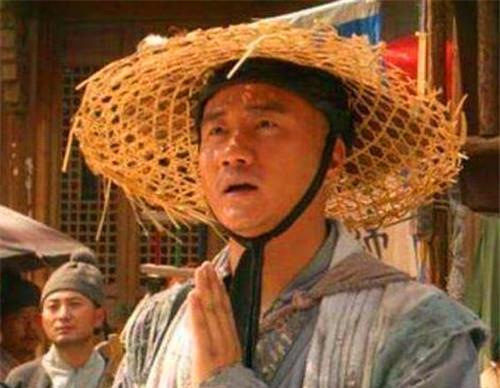China has a long history, and in the long period of dynastic replacement, China has nearly 500 emperors. And these emperors also had many founding monarchs, but most of them were courtiers or princes before they started the army, and it was rare for emperors like Zhu Yuanzhang and Liu Bang to be born as civilians. Compared with Liu Bang, Zhu Yuanzhang experienced wars and famines, and from an early age, he worked as a cowherd and a monk. After becoming emperor as a monk, he occasionally went to temples. Once, he asked the abbot a question: Do you want to kneel down too? If this question is not done well, it will take the life of the whole temple, and the abbot answered with eight words tactfully, and Zhu Yuanzhang let them go.

Zhu Yuanzhang was born on October 29, 1328, and he experienced hardships from an early age. When he was born, it was already the last year of the Yuan Dynasty, the world began to be turbulent, and Zhu Yuanzhang's family was very poor. According to the "Zhu Shide Monument" written by Zhu Yuanzhang himself later, the Zhu family was a farmer from a long time ago, and Zhu Yuanzhang was called Zhu Zhongba because he ranked eighth in the family.
When Zhu Zhongba was born, no one would have thought that this child would later become the founding emperor of the Ming Empire. Becoming the lord of the world, he was born at the time when the Mongols and the Han people had the most contradictions, the Yuan Dynasty squeezed the people, Zhu Zhongba was discriminated against from an early age, according to the history books, the Mongols divided people into four classes, the Han people were inferior, and the Han people in the south were the lowest class.
In 1343, under the condition of continuous famine, Zhu Yuanzhang's husband and wife died with his mother and eldest brother. In order to survive, Zhu Yuanzhang could only go to the monks of Huangjue Temple, whose life in this temple was not very good, all kinds of work had to be done, and he had to be bullied by the old monk. But he had no choice but to endure in order to survive.
Heaven gave Zhu Yuanzhang a lot of tribulations, but it also gave him the best gift--the world. In the eleventh year of Zhizheng (1351), Zhu Yuanzhang joined the rebel army, and his previous life allowed him to accumulate a lot of life experience, which created his resolute and courageous character. Zhu Yuanzhang relied on these and his outstanding military talents to defeat Zhang Shicheng, Chen Youyu and others one by one, and the Mongols also lost their combat effectiveness in a long period of pampering and superiority, and were pulled from the throne by the rulers of the Yuan Dynasty.
Zhu Yuanzhang became the emperor feared by everyone in the world, ending the ninety-eight years of Mongol rule in the Central Plains. He was a good emperor and often considered a tyrant because he killed tens of thousands of people in the four major cases of the early Ming Dynasty, but most of the people he killed were corrupt officials. When he became emperor, he was the most honorable person in the world, and one day, when he went to the temple to worship, he thought of a problem. So do the most noble people in the world still need to meet these gods and Buddhas? So he asked the abbot of the temple his question: Do you need to kneel?
Everyone present pinched a cold sweat for the abbot, and they all knew that Zhu Yuanzhang's temper was not very good, and a bad answer was not the abbot's life. But Zhu Yuanzhang is the emperor, and he certainly can't say that he needs to, and if he says he doesn't need it, he has to find a good reason. Fortunately, the abbot's brain was clever, and he said: Seeing the Buddha in the past does not worship the Buddha. The meaning of this is that the current Buddha does not have to worship the Buddha of the past, and after slapping the horse's ass, he has solved the problem. Zhu Yuanzhang was also very satisfied, so he spared the abbot and others, and happily rewarded the temple with a lot of incense money.
References: Ming Shi Taizu Benji, Ming Shilu Taizu Scroll, Ming Tong Jian, Ming Shi Chronicle at the end of the Ming Chronicle